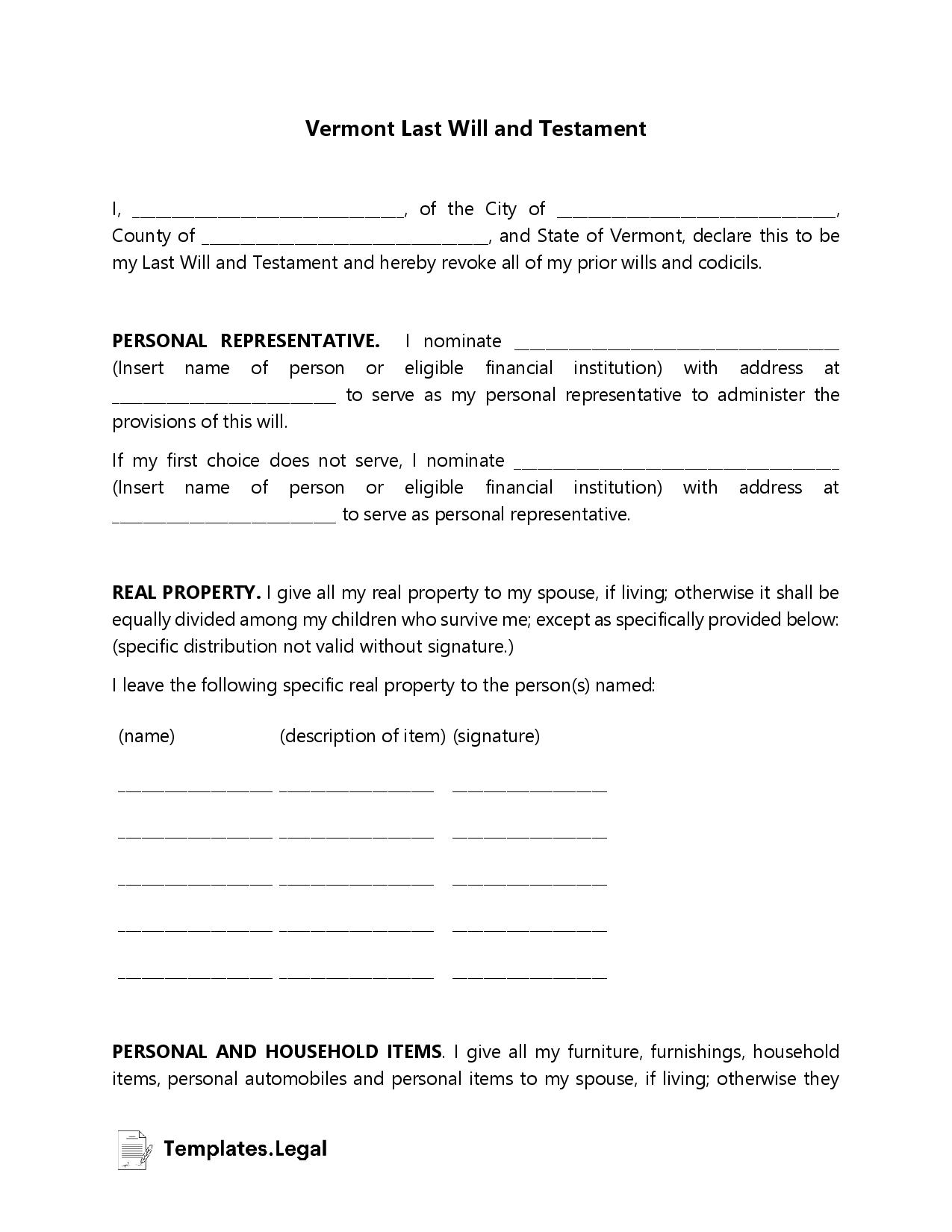Vermont Last Will and Testament
Creating a last will and testament is essential for managing your assets. This document ensures that your wishes are followed after your death. According to Title 14, Section 1 of the Vermont Statutes, individuals must be 18 years of age or older (or emancipated) to create a will. A Vermont last will and testament must only be made by a person of sound mind.
There are three main things to consider when writing your will: assets, guardianship, and executorship.
- Distribute Your Assets
Start by making a list of your assets that includes any property. Determine who you would like to inherit your assets after your death.
- Appoint a Guardian
If you have children, you will need to appoint a guardian. This appointment names the person you want to care for your children if they are minors when you die.
- Designate an Executor
Choose an executor to carry out your wishes. The executor is responsible for ensuring that all of the terms in your will are followed. Your executor will distribute your assets. They will also take care of any taxes or debt associated with your estate.
Vermont Last Will and Testament Template
Signing Requirements
Title 14, Section 5 of the Vermont Statutes explains that a will must be signed in the presence of two witnesses. These two individuals must also sign the last will and testament form in front of you and each other.
How to Change a Will in Vermont
You can change your will by revoking your old one. This is done either by destroying the old will or by stating in your new will that you are revoking any old wills.
You can change your will at any time and as often as needed.

